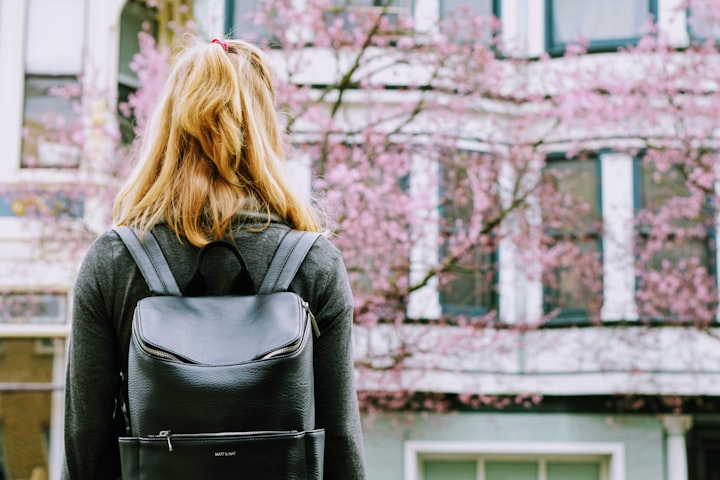Music Education Is Dying - But It’s Worth Saving
Music is undervalued in schools. Future generations deserve a reformed creative education.

The UK's music industry contributes £4.4 billion to the economy every year and projects soft power around the world. The top three albums of 2017 were all made by British artists and three of the five top artists of 2016 were Brits. More than a sixth of the top 200 most streamed songs on Spotify are from the back catalogue of British artists. Despite our immeasurable contribution to pop music over the last several decades, recent governments have chosen to slash access to music education for thousands of young people leading to an impending skills shortage which will threaten not only our economy but our national well-being too.
This year a survey carried out by the BBC found that nearly 40 percent of UK secondary schools had cut back on staff, lesson time, and facilities for at least one creative subject, with many schools cutting several subject areas including music, drama and art. Arts candidates at GCSE level are down 20 percent since 2010 according to Professor Colin Lawson of the Royal College of Music. These cuts at the entry level should be viewed in a wider context of hardship across the creative sector.
There is an almost constant threat of closure facing many of our country’s smaller live music venues. In Manchester, for example, despite the city’s reputation as a hot-bed for independent music, several well known venues have closed, and many more face closure in the coming years if business does not pick up. Many of these venues are in Manchester’s fabled "Northern Quarter," an area that has seen huge growth and renovation over the last decade. Still, this hasn’t been enough to save some of its venues.
There is a popular belief—held by many from economists to PTA members—that in times of austerity the creative disciplines should be the first to be squeezed. It’s a view that centres around the idea that the arts are less profitable and therefore less essential to society. A quick look into the tourist revenue attracted to the country by, say, London’s West End theatres, and this theory starts to look like demonstrably shabby economics but still the idea persists. That’s why when the coalition government slashed Arts Council funding by 30 percent there was no mass public outrage. Even now, a decade on from the financial crash, with NHS staff poised to take strike action over 8p pay rises, no one is preparing to mount a political crusade for a better deal for the arts. However, we need to think a little further down the road if we are to understand why a realignment of our educational priorities is essential.
Working life is changing. Part-time hours, flexible working arrangements, and job shares are on the rise and we are yet to reconcile ourselves to the fact that we should be educating young people for a multiple-job working life. In a scenario where self employment will be widespread and the average millennial will think nothing of having three jobs at any one time, empowering individuals with a plethora of tools will create a more versatile and entrepreneurial workforce. Music is an essential part of this.
Many people who learn an instrument at a young age reap the benefit by being able to supplement their income in later life. This could be by giving lessons during evenings and weekends or playing at functions such as weddings. The benefits of learning music are not all economic. Music theory, when delivered as part of a comprehensive curriculum, can be a helpful tool in helping to develop arithmetic skills through auditory learning.
Finally, perhaps the most compelling case for a revaluation of music in schools is the positive effects that both playing and understanding music can have on those suffering with mental health conditions. Millennial Brits are highly likely to suffer from some sort of mental health issue over their lifetime with depression, anxiety, and insomnia all varying wildly in cause and effect. Health professionals are struggling to catch up with the growing needs of a younger generation with more and more complex mental health needs and an ageing population who are living longer with increased cases of Dementia and Alzheimer’s.
Listening to music releases dopamine, which lifts your mood and there is evidence to suggest that playing music yourself can help with memory issues and expression of complex symptoms. Treatment for mental health is evolving and we should be open minded in confronting the growing crises facing the nations mental well-being.
The undervaluing of the arts is a symptom of our changing society. It may not be the looming spectre of Brexit, the squeeze on our hospitals, or the fall in the pound but it’s a problem which can affect all those things for good or ill. A society that neglects the arts is telling its children that creativity is not a skill—it is limiting its self-expression and strangling its ability to influence on the world stage. It’s time to think again about the role of music, art and drama in our schools.
About the Creator
Shaun Ennis
Shaun from Manchester. Liberal Democrat Councillor representing Timperley Central on Trafford Council.






Comments
There are no comments for this story
Be the first to respond and start the conversation.